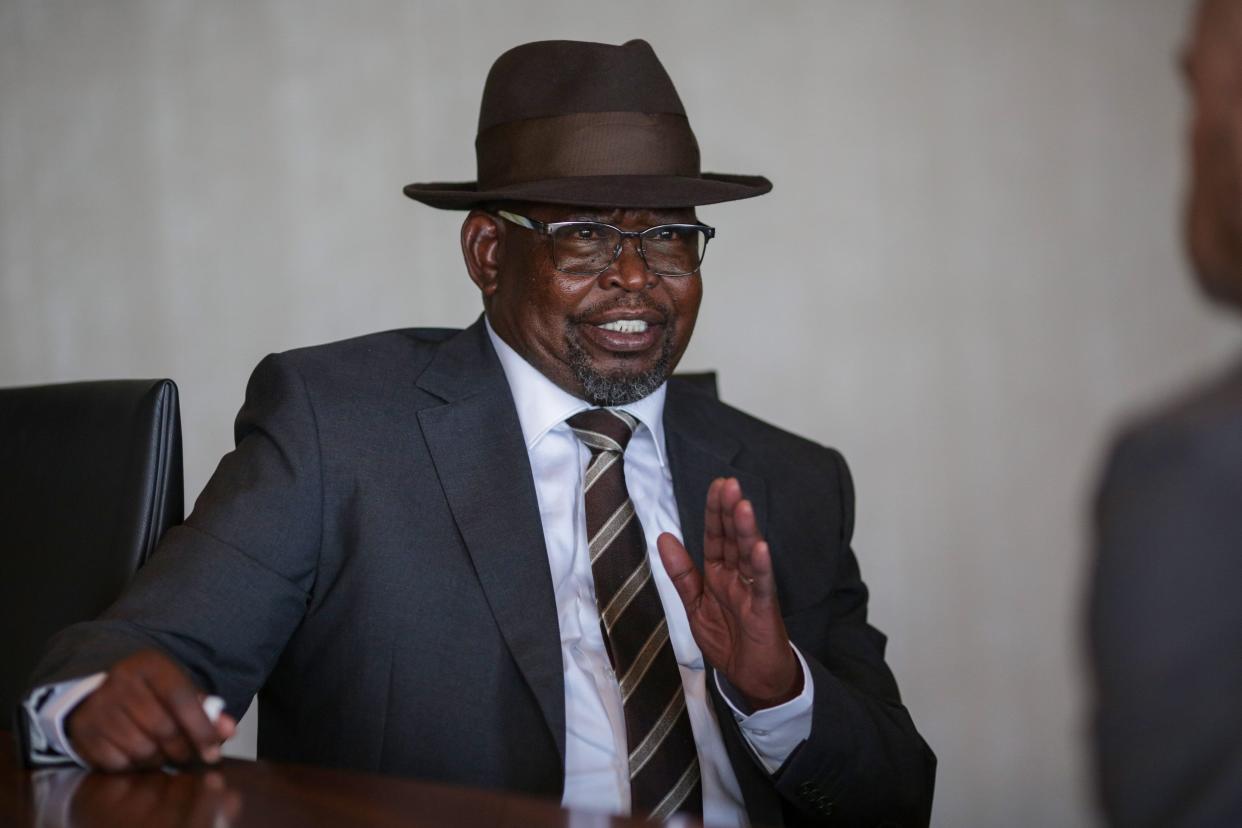Stability or Chaos Is South Africa Voter Choice, Says Godongwana

(Bloomberg) -- South African Finance Minister Enoch Godongwana said he is prepared to stay in his current role after the election and urged the country to choose stability over “chaos” by voting for the African National Congress.
Most Read from Bloomberg
Treasuries Hit as US Sales Struggle to Lure Buyers: Markets Wrap
For Private Credit’s Top Talent, $1 Million a Year Is Not Enough
Israeli Airstrike and Egyptian Guard’s Death Ratchet Up Tensions
Mortgages Stuck Around 7% Force Rapid Rethink of American Dream
“If I am asked to serve I will serve,” he said Tuesday in an interview on Bloomberg Television with Jennifer Zabasajja. “What these elections are about — are about stability and chaos — and the ANC provides that stability.”
South Africans vote on Wednesday, with Godongwana’s ruling ANC facing its toughest election fight since taking power in 1994.
Bloomberg Terminal clients can click on ELEC ZA for more on South Africa’s elections
Opinion polls show ANC support dipping below 50%, which would force it into a coalition with a smaller rival. But recent rand strength suggests investors see it doing well enough to form a government without hooking up with parties to its left, which could push the country in a more populist and less market-friendly direction.
Godongwana voiced confidence that the party will get over the line.
“The ANC is working on the assumption that we’re going to have 50 plus one,” he said. “Anything else which will replace the ANC will be an assembly of a number of not one or two parties, but a conglomeration of parties which will be chaotic.”
Support for the party that Nelson Mandela led into government 30-years ago has sagged amid frustration over broken public services and sky-high unemployment that touched 32.9% in the first quarter.
The economy has been hobbled by snarled logistics and rolling power cuts blamed on mismanagement, corruption and a lack of investment. There’s been no loadshedding – as blackouts are locally known – for a number of weeks. But that’s prompted more suspicion than praise, with opposition parties suggesting they will resume after the vote.
Godongwana said he expects growth to average 1.6% over the medium term. Treasury in February forecast growth picking up from a meager 0.6% in 2023 to 1.3% this year, which is slightly quicker than the 0.9% projected by the International Monetary Fund.
Click here to watch the full interview with Godongwana.
Most Read from Bloomberg Businessweek
©2024 Bloomberg L.P.



